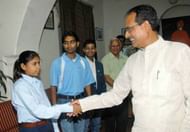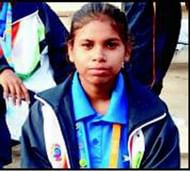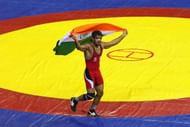Sita Sahu, a mentally-challenged teenager from Rewa, is busy nowadays helping her mother sell ‘gol gappas’ in their nondescript ghetto settlement. Well, that is nothing out of the ordinary, considering there are millions of children in our country faced with a similar bleak fate, their state of living narrating the same old story.
What, then, prompted a leading newspaper to carry a front page article dedicated to delineating her hardships?
Well, she is a precocious talent. Representing India at the 2011 Special Olympics in Athens, she did the nation proud by bagging two bronze medals – in the 200m and 1600m. She was faced with a deluge of congratulatory messages and cash prizes. Her life seemed to have taken a turn for the better.
Sadly, the hollow promises are yet to materialize into something substantial.
Instead of honing her skills on the field, she now spends her time preparing street food for the want of money. Her parents are more concerned about her culinary faculties being improved, rather than ensuring that she does what she does best. Her mother quips, “She can roll out perfectly round gol gappas and fry them golden brown”; an epitome of the sorry state of affairs in our country when it comes to promoting sports and sportspersons.
And her feeling of antipathy when it comes to their child taking to the tracks is not completely misplaced either. The money they were promised is yet to see the light of the day. Not well-off enough to ensure two square meals per day, they are more upbeat about their daughter earning something more than clichéd assurances.
This is not a one-off incident. Nor should it hog the limelight only because the girl is mentally challenged. The apathy of the sports administrators towards ensuring that talented individuals who bring laurels for the nation get their due is not unknown. Be it the women’s teams across all sports, men’s too in many, or individual athletes; no one seems interested in the travails of these sportspersons. A few, somehow, and completely on their own, manage to win competitions of repute, and are thrust into limelight. But ‘few’ assumes great significance here, the numbers being pathetically worrisome.
We, as Indians, are prone to misunderstanding a simple point. Always complaining about how the Indian athletes are an egregious lot, we fail to notice how and in what conditions these athletes carry on with their training, with meagre-to-no state funding, being forced to either arrange resources or call it quits, for rarely does a sportsperson in India emerge from an affluent background. Penury and lack of necessary government support forces them to explore other menial avenues in order to make ends meet.
A promising career washed down the lanes of a life of drudgery.
There have been some exceptions, of course. But they are few and far away. For instance, success at the Olympic Games ensures fame and lifelong sustenance. Sushil Kumar and Yogeshwar Dutt were propelled into instant fame and recognition. What about the others though, the less successful but equally capable ones?
India’s lacklustre standing in the international arena as regards sports other than cricket has a lot to do with the lackadaisical attitude of those at the helm of affairs. Instead of making efforts to promote any sport, they are more concerned about consecrating those few individuals who succeed, and usurping a share of the limelight. They need to be applauded, no doubt, but what about those who are languishing as a consequence of their penury?
Won’t Government-funded incentives produce more such distinguished individuals? Should the authorities not pay attention before any one-off success story to ensure that the number of such stories increase? Do these athletes not deserve proper encouragement and support (of course, in monetary terms and the like) to help them realize their potential?
The time has come to let go of red tape and tardy, archaic mind-sets, and ensure that another Sita Sahu is not created. Maybe not possible in another 100 years, but still, the start has to be made somewhere.



